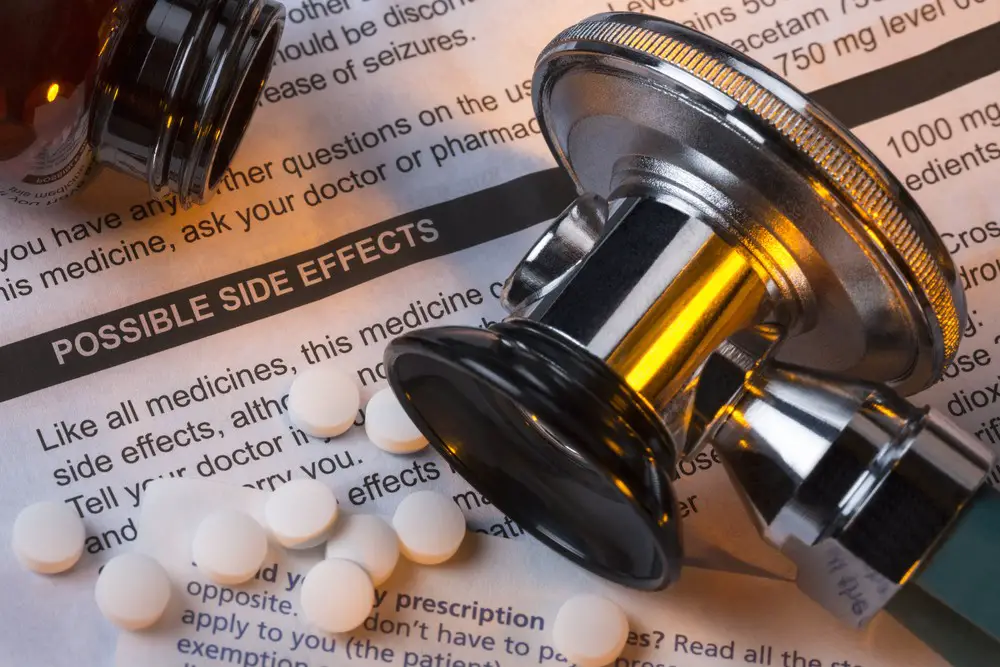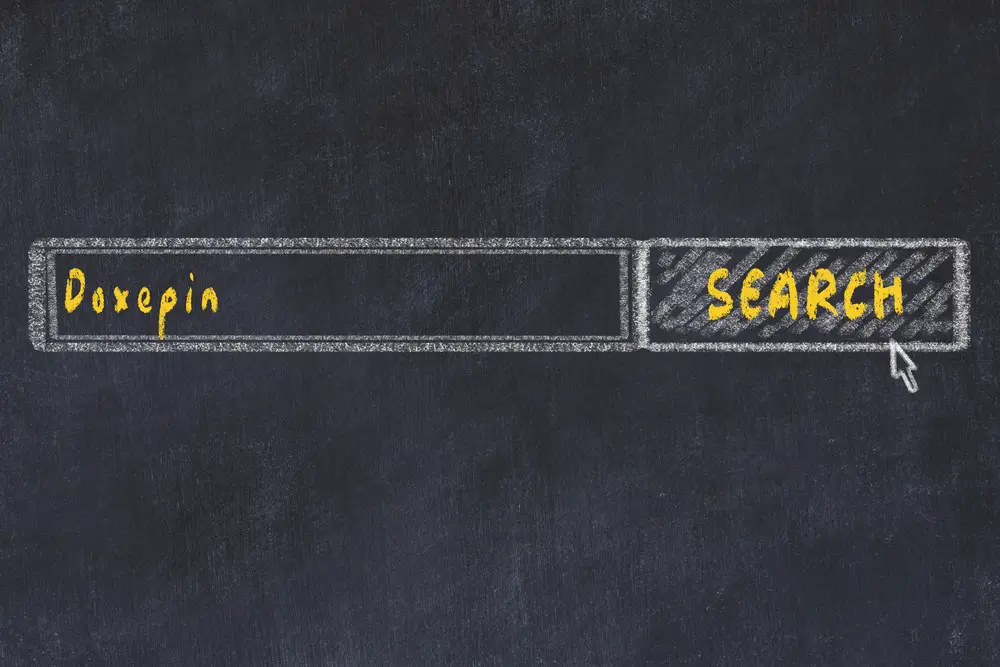As a BetterHelp affiliate, we receive compensation from BetterHelp if you purchase products or services through the links provided
Doxepin (Silenor), the psychotropic drug, is typically prescribed to treat depression, anxiety, insomnia, and manic-depressive disorder. As with all medications, it’s crucial to take doxepin as your doctor directs. You should not increase or decrease the dosage or take it more often. Most importantly, never take it longer than ordered.
Why Can’t You Take Doxepin with Food?
If you have insomnia, particularly sleep maintenance, your doctor will likely give you a low dose of doxepin to help increase your sleep duration. Doxepin is a tricyclic antidepressant that increases the chemicals that send messages among the brain cells, known as neurotransmitters.
Usually, doctors prescribe the FDA-approved medication for no longer than four to eight weeks and ask patients to take it about half an hour before bedtime.
If your doctor has prescribed a low dosage of doxepin for your insomnia, he will also have told you not to use it just before, during, or immediately after a meal.
However, you may wonder why can’t you take doxepin with food.
According to this guide from the Mayo Clinic on using tablets containing doxepin, you should never take your dosage within three hours of a meal. The reasons are that the pill may not work effectively because taking it with food delays the absorption of the active ingredients. Additionally, the slow absorption can make you sleepy the next day, especially if you have taken the tablet with or after a meal.
Common Doxepin Side-Effects

The most common side effects of doxepin include headaches and somnolence (drowsiness). However, the drug also has several other categories of potential side effects. These include anticholinergic, cardiovascular, several central nervous system effects, allergic, gastrointestinal, hematologic, and endocrine effects.
Taking Precautions When Using Doxepin
Now that you know why you can’t take doxepin with food, here are several more precautions you should be aware of:
- The sedating effects of doxepin can cause drowsiness, especially in older adults. Therefore, before you know how the drug will affect you, avoiding driving or using heavy machinery is always a reasonable precaution.
- Alcohol can increase the drug’s effects, so avoid consuming excessive amounts. Your doctor can tell you how much alcohol is safe while on the medication.
- Find out if you are susceptible to glaucoma before taking doxepin because the drug can cause mild dilation of the pupils that may result in angle-closure glaucoma. In addition, if you are at risk of a condition causing a bulging iris to block drainage of the eye fluids. A procedure to remove the part of the iris can help prevent the condition.
- You cannot take doxepin if you have certain cardiovascular conditions, are breastfeeding, are lactating, or have a history of attempted suicide or overdose.
- People on opioids, other antidepressants, psychedelics, and herbal medications may have drug interactions with doxepin. According to Medical News Today, if a person also takes a monoamine oxidase inhibitor like selegiline, they should wait 14 days after discontinuing before using doxepin.
- Finally, if you miss a dose of doxepin, you can take it as soon as possible, but not if it’s too close to the time for your regular dose. In that case, skip the dose and revert to your proper dosing schedule. Never double dose!
Understanding Medication Interactions
Ideally, when taking any medication, it’s vital to understand medication interactions.
Drug interactions can entail the reaction between other medications you are taking. However, sometimes foods, beverages, and supplements you may take can also cause medication interactions, as can some medical conditions. For example, someone with high blood pressure using a nasal decongestant may have an interaction.
Besides unwanted side effects, medication interactions can also affect how certain drugs work or have harmful side effects. Therefore, if you see more than one doctor and take several medications, always tell them what other medicines you take. In addition, it would help if you always read the labels of any prescription and non-prescription drugs before taking them to help reduce the risk of medication interactions.
Drug Interaction Categories
There are three broad categories of drug interactions that you should be aware of to reduce your risk:
Interaction of two or more drugs – Drug-drug interactions may cause unexpected side effects. For example, if you take a drug to help you sleep and an antihistamine for an allergy, your reaction time can slow down substantially, making driving a car or operating machinery dangerous.
Interaction of drugs with food or beverages – Several drugs can interact with certain foods or beverages. For example, mixing some drugs with alcohol may cause tiredness or slow your reactions. Another example is consuming grapefruit juice when taking statin drugs to lower cholesterol or to treat high blood pressure. The reason is that grapefruit blocks the way the body metabolizes the drugs, allowing them to stay in the body longer than they should, increasing the risk of damage to the liver, muscles, and kidney failure.
Interaction of drugs with existing medical conditions – For example, someone with high blood pressure may experience an unwanted reaction when using a nasal decongestant.
Essential Questions to Ask About Drug Interactions
When your doctor prescribes a drug, discussing all other prescription drugs, over-the-counter medications (OTC), dietary supplements (including herbals), and foods you eat with them is vital. Additionally, ask your pharmacist to provide the package insert for the prescription drug so you can read the information about potential drug interactions.
Follow your doctor’s instructions to take the drug safely and responsibly. Your doctor and the package insert will provide details like what the drug is for, how to take it, and how to reduce interactions and side effects.
Ask your doctor and pharmacist these questions to avoid potential drug interactions:
- Can you take the drug with other drugs?
- What foods, beverages, or other products should you avoid while using the medicine?
- What possible drug interaction signs should you be aware of?
- How does the drug work in your body?
- Where else can you find more information about the prescribed medication or your condition? (Your doctor may recommend a website or literature).



